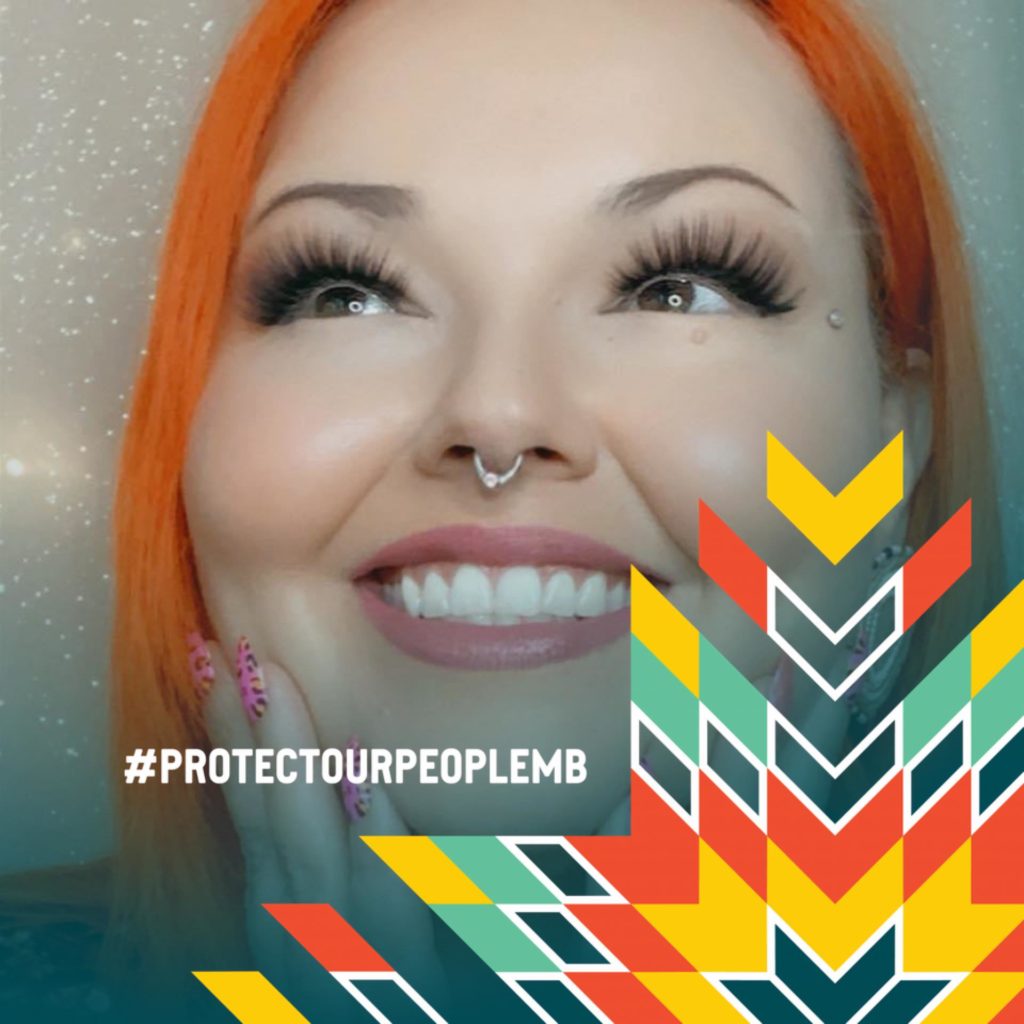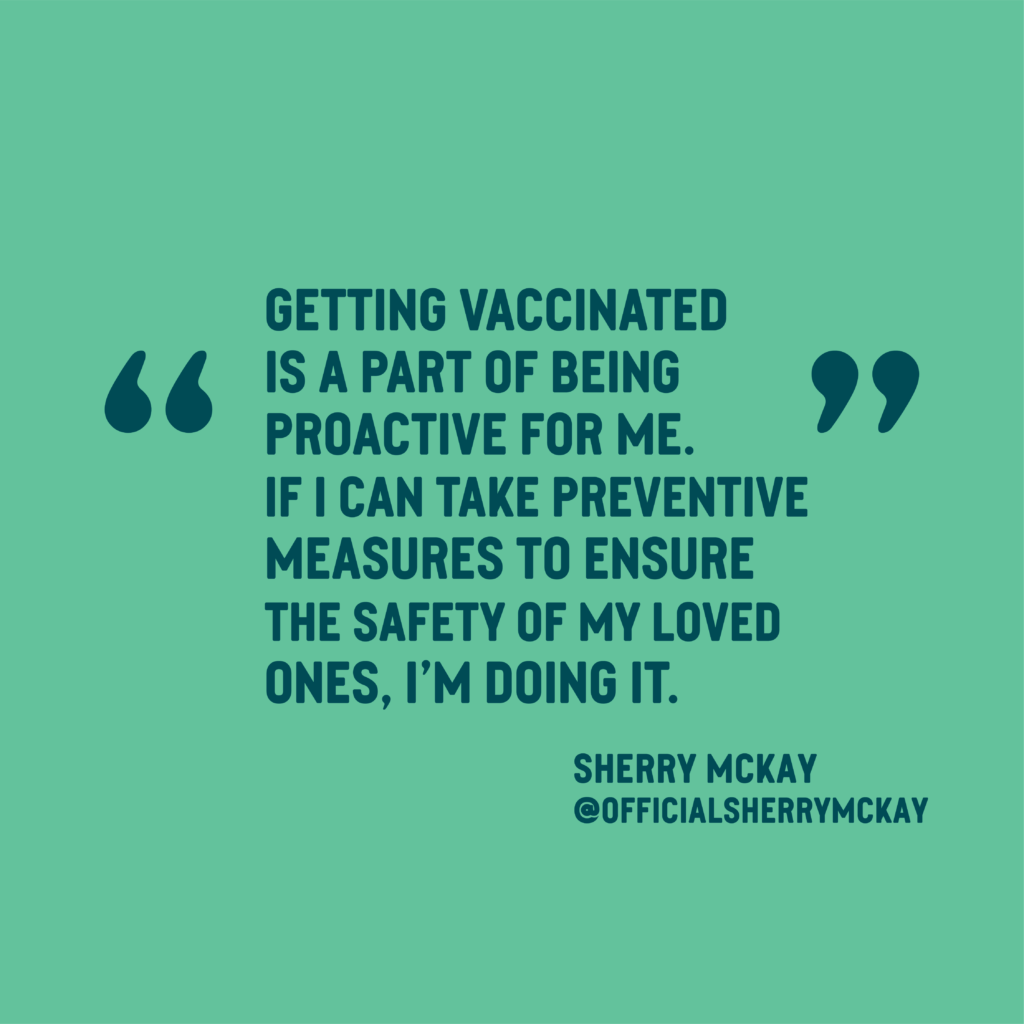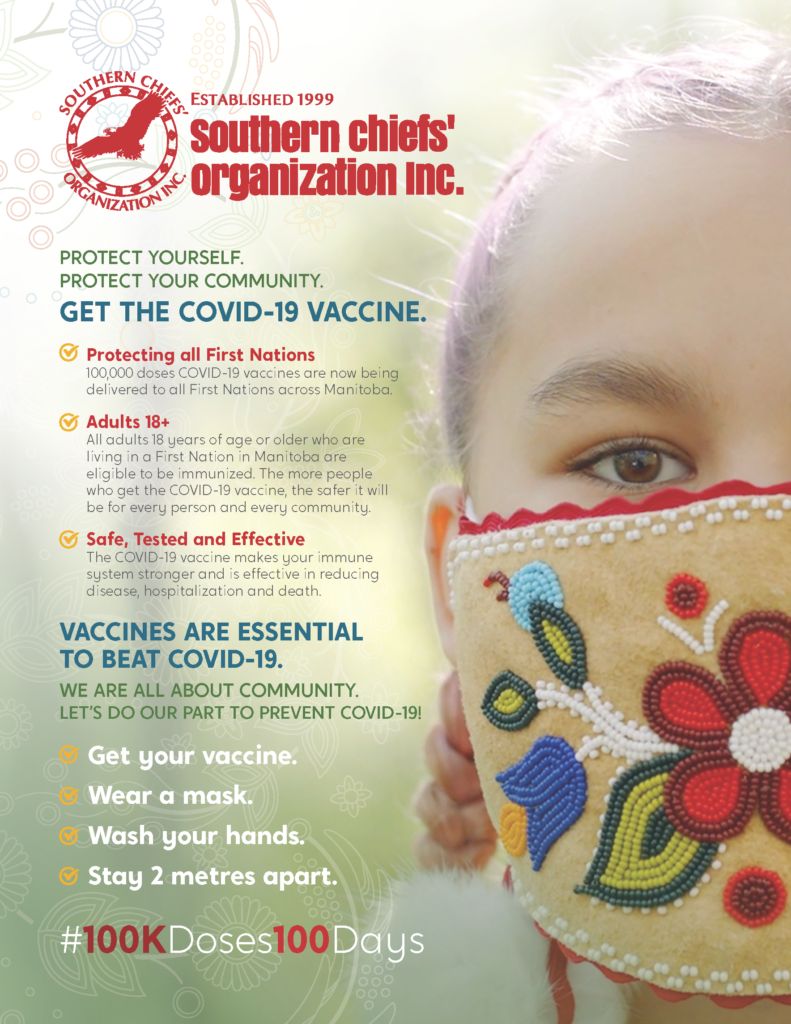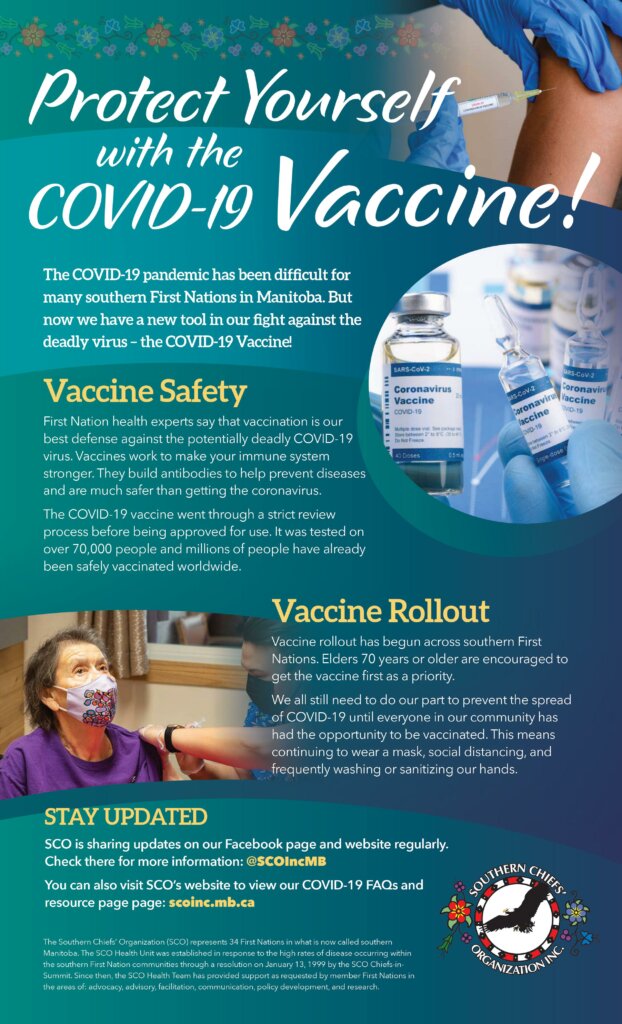
COVID SUPPLIES AVAILABLE FOR OFF RESERVE SCO COMMUNITY MEMBERS!
SCO is distributing Covid-19 rapid tests and masks to our urban members living off reserve, in addition to our First Nation distributions already well underway, as we continue to protect our people and keep our relatives safe.
Items are available on a first come first serve basis while supplies last. To receive a package please drop by our sub-office at 1572 Dublin Avenue between the hours of 9:00am to 12:00pm or 1:00pm to 4:00pm Monday to Friday with your status card.
COVID-19 Updates
As Chiefs and Councilors, health leaders, essential workers and community members work to protect our people and communities, we ask everyone to continue to take precautions to reduce the spread of COVID-19 and the new and dangerous variants.
The entire province of Manitoba is at the LIMITED RISK level (green) on the Pandemic Response System. On March 15, 2022, Manitoba has lifted remaining public health restrictions. This includes mask and self isolation requirements, and travel restrictions within Manitoba.
COVID-19 Vaccine Updates
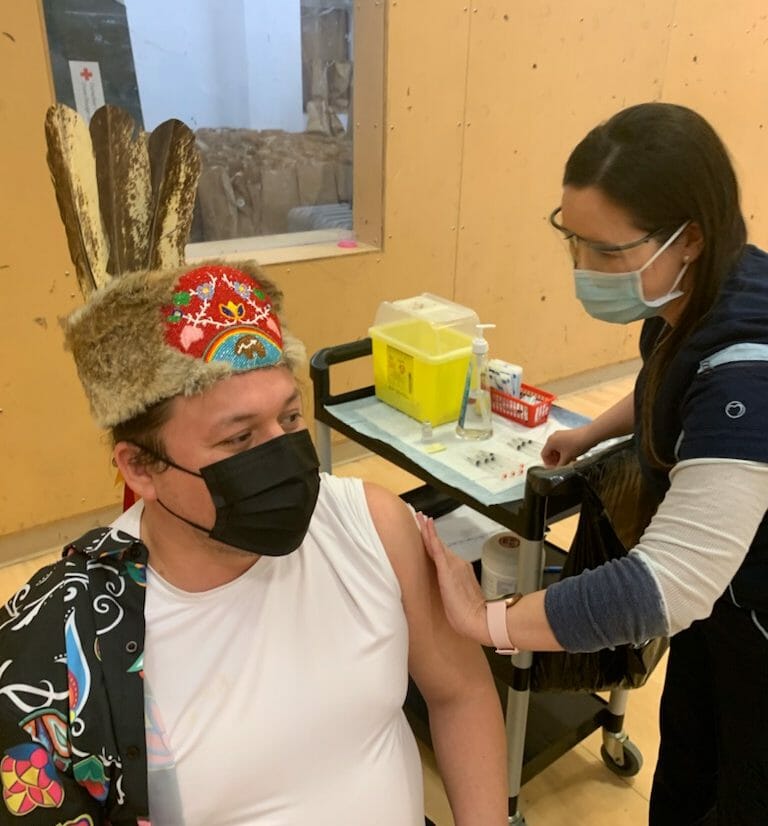
The COVID-19 vaccine is now available on and off reserve for everyone aged 6 months and older. It is now recommended that youth aged 12-17 and all adults 18 and older get a third dose of the vaccine.
We encourage everyone to get vaccinated to protect yourself and others against this deadly virus, which is having a disproportionate impact on our communities and citizens.
Do you still need to get vaccinated and aren’t sure where to go?
Check out the COVID-19 vaccine finder here!
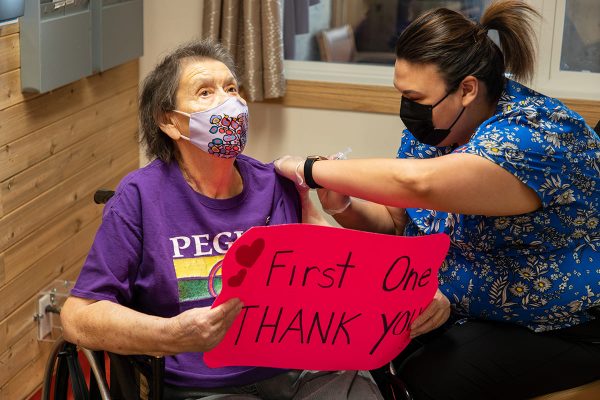
COVID-19 VACCINE FREQUENTLY ASKED QUESTIONS
Why should I get a COVID-19 vaccine?
Vaccines make your immune system stronger. They build antibodies to help prevent diseases. Immunization is much safer than getting the potentially deadly COVID-19 virus.
Vaccines also provide protection for certain people who cannot get the vaccine, such as immunocompromised people and people with certain allergies. If the majority of people are vaccinated, that helps prevent the spread of the virus, which protects the health of the whole community.
Why are First Nation people a priority?
First Nation people are a priority for a number of reasons, including:
- First Nation people are particularly vulnerable to this deadly virus, largely due to colonial legacies which have led to lower health outcomes overall.
- First Nations are over-represented in hospitalizations and ICU admissions due to COVID-19.
Is the COVID-19 vaccine safe?
Yes!
All vaccines are peer-reviewed and analyzed for their safety and effectiveness before they are granted approval by Health Canada. They have to go through a strict vetting process and must be shown to be safe and effective before they can be used. After approval, they continue to be monitored closely for their safety and effectiveness.
Four vaccines have been approved by Health Canada so far for use, Moderna, Pfizer, AstraZeneca, and Janssen. Millions of people worldwide have already been vaccinated with more people receiving the COVID-19 vaccine every day!
First Nation Health experts have advised us that this is the best tool we have to protect First Nation people from the coronavirus.
I am hesitant to get a COVID-19 vaccine, what should I do?
Some people are hesitant to get vaccinated against COVID-19 for a variety of reasons, including concerns and feelings of mistrust towards the Canadian medical establishment, inaccurate information shared about vaccines online and on social media, and the fact that the COVID-19 vaccines have been produced relatively quickly.
First Nation health experts encourage everyone to be vaccinated as our best defense against this deadly virus, which has had a disproportionate affect on First Nation people, communities, and livelihoods.
If you’re still hesitant after reading this FAQs guide then we highly recommend for you to contact your local health station or clinic where you can get trustworthy information on the vaccine, its distribution, and any other questions you may have.
Take a look at some COVID-19 Myths & Facts here!
What is the difference between the vaccines?
All of the vaccines offer excellent protection against the COVID-19 virus. As an example, early results from clinical trials show the Moderna vaccine to be 94% effective at preventing COVID-19 infections that produce symptoms. You are still able to get the virus and spread it after being vaccinated, however, you are far less likely to experience serious outcomes from the virus.
The Moderna vaccine, which is given in two doses several weeks a part, gives the immune system a preview of what the real virus looks like without causing the disease. This preview gives the immune system time to design powerful antibodies that can neutralize the virus and protect us from infection.
Why are First Nations receiving the Moderna vaccine, not a difference vaccine?
All vaccines are shown to be highly effective, but the Moderna vaccine is easier to transport and was therefore selected for shipment to First Nations. Other vaccines, such as Pfizer, are more difficult to transport.
First Nation people who are eligible can also be vaccinated at one of the province’s supersites, located in Winnipeg, Brandon, Dauphin, Morden, Steinbach, Selkirk, and Thompson, or an Indigenous vaccine clinic, or various pop-up clinics.
Find where to get your COVID-19 vaccine here.
We encourage everyone who is eligible to receive a vaccine, any vaccine, to be vaccinated!
I live on-reserve, where can I get vaccinated?
You can receive your vaccination on reserve by visiting your health centre or health care provider. Call your health centre to make an appointment.
I live off-reserve, where can I get vaccinated?
First Nation people living off reserve can access provincial vaccination supersites, Indigenous clinics and pop-up clinics as long as you are aged 6 months or older. Please note that family members and caregivers can make an appointment on a loved one’s behalf.
Find where to get your COVID-19 vaccine here.
These clinics were created to be a culturally safe space for all Indigenous peoples.
Who should NOT get the COVID-19 vaccine?
For the vast majority of people, the COVID-19 vaccine is a safe and effective way to protect themselves and others against the virus.
However, there is a very small number of people who can’t or shouldn’t be immunized. If you feel that you may qualify for a medical exemption based on the criteria listed below, the first step is to schedule an appointment with your own health care provider and/or your specialist.
They will review the exemption criteria with you to determine if you may qualify. Only a specialist physician can request a medical exemption from the province, based on your medical history. Individuals cannot submit their own requests for exemption. Once it is submitted, information about the exemption will be entered into the provincial immunization database, including whether the exemption is permanent or temporary.
Criteria:
Manitoba is developing a medical exemption process for people in one of three situations, who:
- had a severe reaction after the first dose of a COVID-19 vaccine (e.g. myocarditis, Guillain-Barré syndrome);
- are receiving treatment that affects their ability to mount an immune response, meaning vaccination must be timed carefully with their treatment schedule (e.g. receiving immunocompromising treatment after a transplant, certain types of cancer treatments); or
- had a severe allergy or anaphylactic reaction to a previous dose of a COVID-19 vaccine or its components that cannot be managed by the Health Sciences Centre Allergy Clinic.
How do I get my Immunization Card?
- You need to have received two doses of a vaccine, and wait 14 days after getting your second dose, so it can take full effect.
- You have to have a Manitoba Health Card to be eligible for an Immunization Card.
- 14 days after your second dose, go here to register to create your account and enter your information – name, birthdate, health card registration number (6-digit) and Personal Health Information Number (9-digit) from your Manitoba Health Card.
People who are exempt from the vaccine will be able to request their digital or physical Manitoba immunization card approximately seven to 14 business days after their exemption is submitted. The card and the display shown after scanning the QR code will be identical to those currently used by fully immunized people. This will help protect the private health information of exempt individuals, while also keeping a simple, consistent process for venues and events that must validate immunization status.
Are there side effects from COVID-19 vaccines?
While safe, there can be side effects from the COVID-19 vaccine, but they tend to be mild and go away in a few days, similar to a flu shot. It’s also very normal and natural to experience some side effects as your immune system responds to the vaccine’s healing components.
Responses may include:
- redness, swelling, or feeling sore where you had the needle
- feeling tired
- headache
- fever or chills
- body aches or sore joints
- feeling sick to your stomach (nausea), vomiting (throwing up), or loose stool (diarrhea)
- swollen lymph nodes
After you receive the vaccine, you will be monitored for at least 15 minutes in the unlikely event you experience an allergic reaction (hives, swelling of the throat, etc.).
If you experience an adverse event or medical condition of concern after you leave the place of vaccination contact your health station/clinic or call Health Links–Info Santé in Winnipeg at (204) 788-8200, or toll free elsewhere in Manitoba at 1-888-315-9257.
Is there a cost to getting a COVID-19 vaccine?
No! All COVID-19 vaccines are free of cost.
What do I need to know when I go to my appointment?
- Bring your health card, or another type of identification (such as driver’s license).
- Wear a mask.
- Wear a short sleeved shirt.
- If needed, you can bring a helper such as a caregiver or family member (who must also wear a mask).
- Be prepared for a 45-minute stay at the site.
#ProtectOurPeopleMB Campaign!
Protect Our People MB is a grassroots vaccine campaign led by the Southern Chiefs’ Organization Inc. (SCO), Manitoba Keewatinowi Okimakanak Inc. (MKO), Assembly of Manitoba Chiefs (AMC), Keewatinohk Inniniw Minoayawin Inc. (KIM), the First Nations Health and Social Secretariat of Manitoba (FNHSSM), and the Manitoba government.
Everyone is encouraged to follow and share videos and posts from the Protect Our People MB campaign accounts: Instagram @protectourpeoplemb, Twitter @protectourpplmb, and Facebook @ProtectOurPeopleMB using the hashtags: #protectyourself, #protectourpeople, #protectourcommunities, #protectourpeoplemb #doitforourelders, #doitforourchildren and #vaccineproud.
For more information on the Protect Our People MB campaign and how to get involved, visit protectourpeoplemb.ca.
Additional Resources
Protect Our People MB – Campaign Posters (PDF)
Province of Manitoba COVID-19 Vaccine resource page
Let’s Get Vaccinated – Anishinaabe Poster
COVID-19 Indigenous Health Resources
COVID-19 and Indigenous Communities – Government of Canada
Mental Wellness
If you are experiencing emotional distress and want to talk, contact the toll-free Hope for Wellness Help Line at 1-855-242-3310 or the online chat at hopeforwellness.ca open 24 hours a day, 7 days a week. Telephone and online counselling are available in English and in Anishinaabe on request.
Kids Help Phone offers professional counselling, information, referrals, and volunteer-led, text-based support for children and youth. Text CONNECT to 6868608.
You can also call the Manitoba Addictions Helpline at 1-855-662-6605.
For other resources and information, visit the SCO Mental Wellness webpage.


